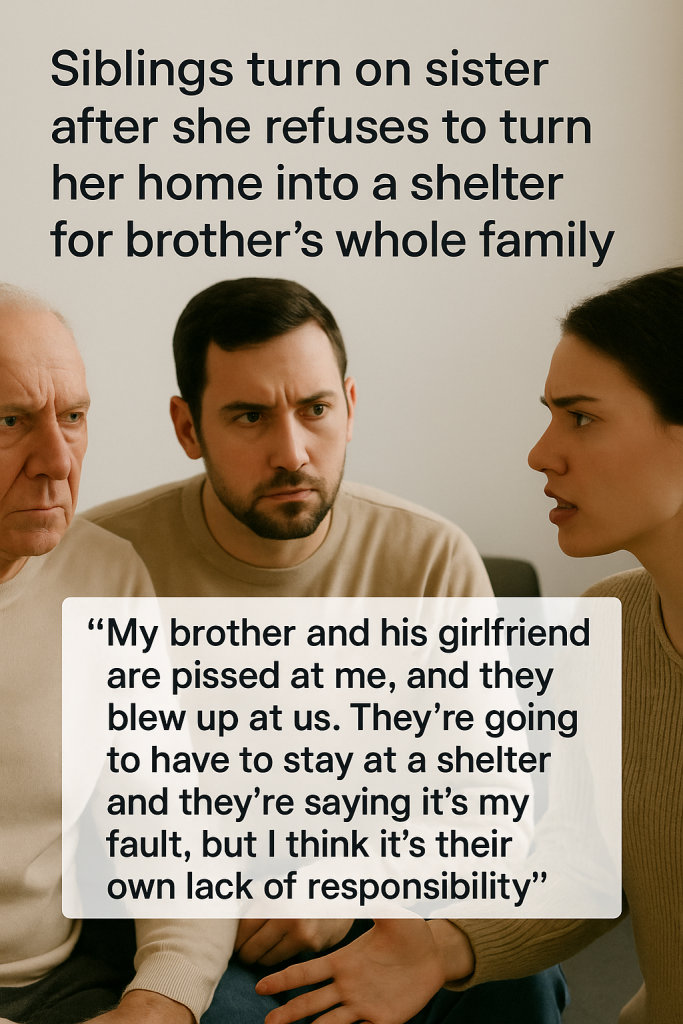In a deeply personal family conflict that has captured attention on social media, tensions have escalated after one sister refused to transform her home into a shelter for her brother’s entire family, igniting a bitter dispute among siblings.
The situation arose when the brother, facing housing difficulties, approached his sister with a request to accommodate not only himself but also his partner and their children in her residence. However, the sister declined the appeal, citing concerns about space, privacy, and the long-term impact on her household’s stability.
Family members divided, the disagreement quickly spiraled, with the brother and his girlfriend expressing frustration and resentment toward the sister’s decision. According to posts circulating on social media platforms, the siblings’ relationship has since become strained, with accusations of selfishness and lack of familial support being exchanged.
The sister, who owns a modest single-family home, stated that while she sympathizes with her brother’s predicament, taking in the entire family would impose significant burdens. These include logistical challenges, such as accommodating multiple people in limited living space, as well as financial strains and the disruption of her own family’s daily life.
“I want to help him, but this is an enormous ask,” she said in a candid online confession that quickly went viral. “It’s not just about generosity; it’s about what I can realistically handle without risking my own family’s well-being.”
This familial rift highlights a broader issue increasingly common in 2024: the pressure placed on relatives to provide emergency housing amid rising housing costs and economic instability. Many families find themselves navigating the fine line between support and personal boundaries.
Experts note that while offering shelter is often seen as an act of familial duty, it can sometimes lead to long-term resentment if expectations and limits are not clearly communicated from the outset. Family therapists recommend open dialogue and setting firm boundaries to avoid conflicts that can damage relationships.
The brother’s frustration appears rooted not only in the immediate need for housing but also in feelings of abandonment during a difficult time. From his perspective, the sister’s refusal is perceived as a lack of solidarity, which has inflamed tensions further.
Meanwhile, observers on social media have voiced mixed opinions. Some sympathize with the sister’s position, emphasizing the importance of self-care and maintaining manageable living conditions. Others criticize her, suggesting that family support should take precedence, especially in crises.
As the dispute continues, both parties face the delicate challenge of reconciling their needs and expectations without eroding their sibling bond. This conflict serves as a poignant reminder that family dynamics can be complicated, particularly when financial and logistical hardships collide with emotional obligations.
Ultimately, this story resonates widely, reflecting the struggles many families endure today when trying to balance compassion with practicality. It encourages a deeper conversation about the responsibilities relatives have to one another and how to navigate these often painful decisions with empathy and understanding.



